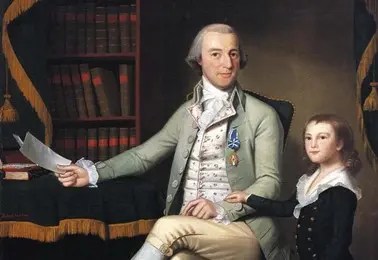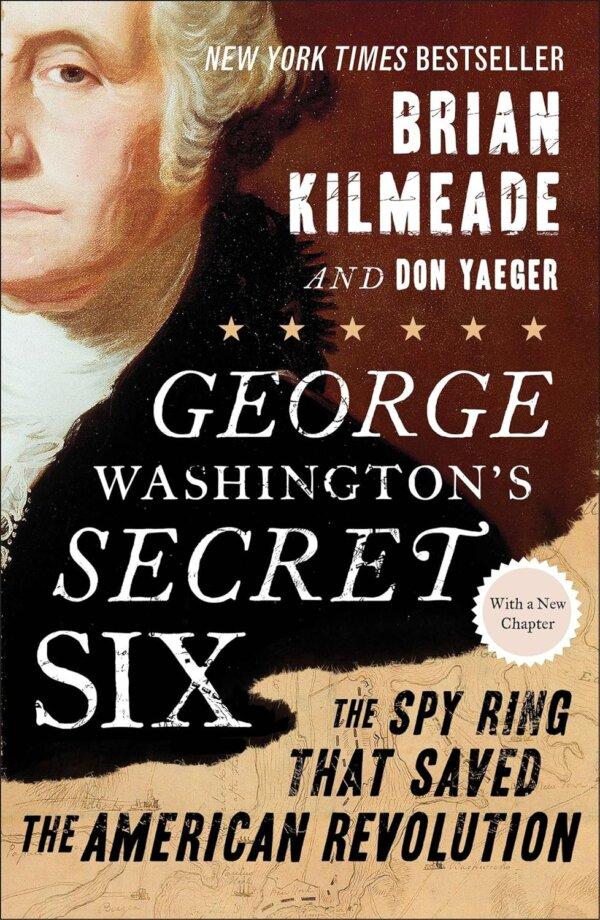
By Brian Kilmeade and Don Yaeger Sentinel
In “George Washington’s Secret Six: The Spies Who Saved America,” young readers will learn of the very effective Culper Ring in helping our nation get its start
The American War of Independence that solidified the foundation of the United States is often described by its battles and military heroism. However, the stealthy action of a half-dozen individuals made a difference that has primarily come to light through 21st-century nonfiction works, such as “George Washington’s Secret Six: The Spies Who Saved America,” by Brian Kilmeade and Don Yaeger.
That the patriots furtively outwitted the British, thus assisting in the outcome of the Revolutionary War, is the thesis of this 320-page, 2016 book. The secret and symbiotic relationship between leading soldiers, such as Maj. Benjamin Tallmadge, and ordinary citizens, like blacksmith and farmer Caleb Brewster, resulted in dangerous plots thwarted and strides made behind the scenes. Dubbed the Culper Spy Ring, the spies’ efforts helped enable—as authors made clear through letters and anecdotal information throughout the book—a nation free from British rule.
At one time, the saying was that the sun never set on the British empire because the country controlled so much of the globe. Thus, the fact that the world’s largest fighting force could be outsmarted by the espionage efforts of a few individuals seems ludicrous. Yet, Kilmeade and Yaeger convey, through statements such as Maj. George Beckwith’s (a British intelligence officer from 1782 to ’83): “Washington did not really outfight the British, he simply outspied us!”—that there is credence in the claim.
The six individuals whom Gen. Washington relied on to provide British troop movements and plans, etc., were— besides Tallmadge and Brewster—Robert Townsend, Abraham Woodhull, Austin Roe, and James Rivington. A woman, her identity guessed but not confirmed, supposedly assisted the ring as well, as did a few other lesser-involved spies. The ring operated primarily from Long Island into New York City.
Intel was gathered and delivered cleverly to Gen. Washington using a number-code dictionary that substituted numbers for people, places, and things. Plus, an invisible ink, developed by chemist James Jay, brother of patriot and American statesman John Jay, was used at times to pen important letters.
When Townsend, a New York journalist accepted into British society, agreed to spy for Gen. Washington, directives were detailed by Washington and Maj. Tallmadge that read, in part, “There can be scarcely any need of recommending the greatest Caution and secrecy in a Business so critical and dangerous. The following seem to be the best general rules: To trust none but the persons fixed upon to transact the Business. …”
The authors inform readers that Gen. Washington’s “knowledge of the ring members’ true identities was, after all, purposely quite limited. He had not wanted to know more than he needed to, in order to protect them, and several of the members had been insistent that Washington never learn their names.” As a result, they were never formerly commended for their service, but the authors also point out that the brave spies’ endeavors “were no less meaningful for having been made in city streets and back country roads than on a battlefield.”
This book has also been adapted for young readers, with short chapters about how and when the Revolutionary War started and the roles the “Secret Six” played during a most impactful time in history.
During an era when early American history is less acknowledged in schools, the Penguin Young Readers’ edition of “George Washington’s Secret Six” is a way to pique students’ interest. In fact, Yaeger indicates on the dedication page a reason for a young readers’ version of the book; his encouragement to his children (and all readers) states: “May a passion for our nation’s history always inspire you to read, learn, and change the world.”

By Brian Kilmeade and Don Yaeger Sentinel, Oct. 18, 2016 Paperback: 320 pages
Source: The Epoch Times
